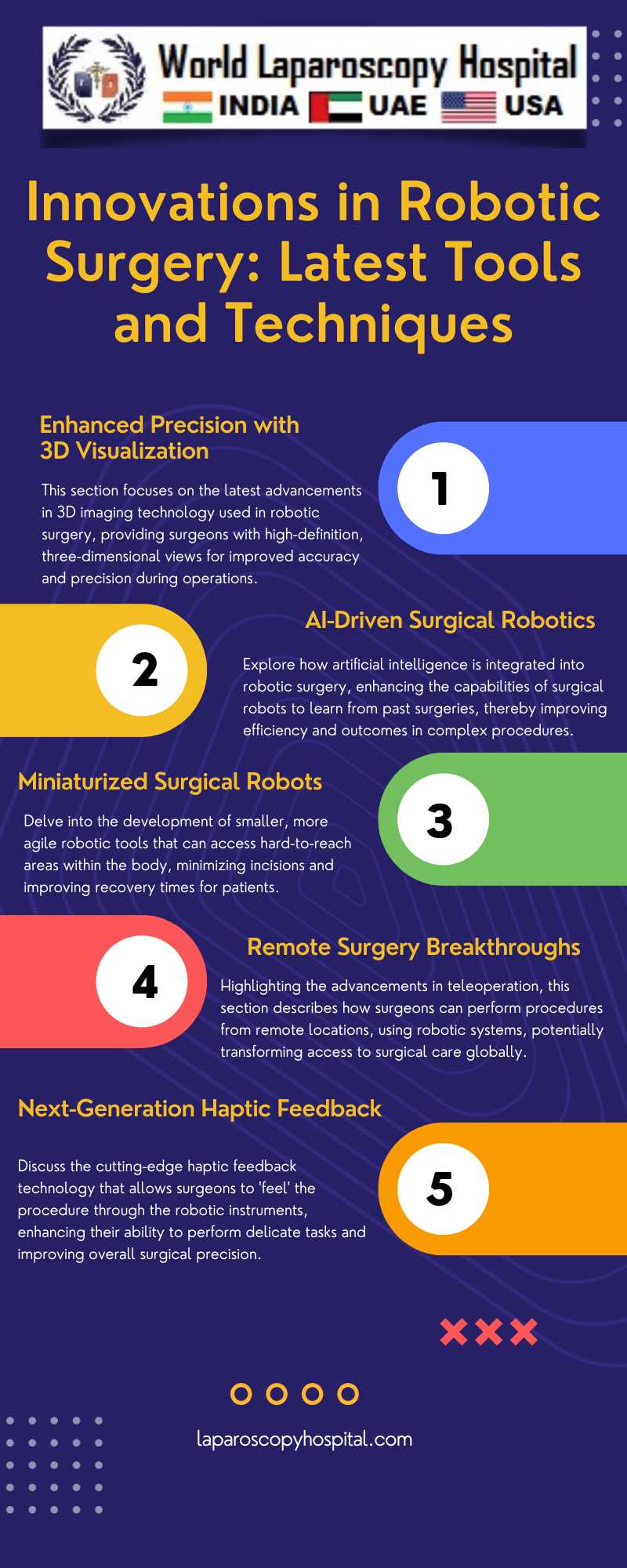
1. Introduction to Robotic Surgery
Robotic surgery represents a paradigm shift in surgical techniques, moving beyond traditional methods to incorporate advanced technology. This approach uses robotic systems to aid surgeons in performing complex procedures with precision, flexibility, and control beyond human capabilities. The roots of robotic surgery can be traced back to the late 20th century, but it's the recent advancements that have truly transformed the field.
2. Latest Tools in Robotic Surgery
One of the most significant developments in robotic surgery tools is the enhancement of robotic arms. These arms are now more dexterous, mimicking the movements of a human hand with greater precision. This advancement allows surgeons to perform intricate procedures in hard-to-reach areas with minimal incisions.
Another critical innovation is the integration of high-definition 3D vision systems. These systems provide surgeons with a detailed view of the surgical area, offering depth perception and a magnified view, which is crucial for precision.
Additionally, the development of specialized instruments for robotic surgery, such as forceps, scissors, and electrocautery tools, has expanded the range of procedures that can be performed robotically. These instruments are designed to be slender yet robust, allowing for precise manipulation of tissues.
3. Advanced Techniques in Robotic Surgery
One of the most innovative techniques in robotic surgery is the use of artificial intelligence (AI) and machine learning. AI algorithms can assist surgeons in planning and executing surgical procedures, analyzing vast amounts of medical data to suggest the best surgical strategies.
Tele-surgery, another groundbreaking technique, allows surgeons to operate remotely using robotic systems. This development is particularly beneficial in providing surgical care in remote or underserved regions.
4. Applications and Impact
Robotic surgery has found applications in various medical fields, including urology, gynecology, and cardiothoracic surgery. Its impact is evident in the reduced recovery time, lower risk of complications, and decreased pain and scarring for patients.
5. Challenges and Future Directions
Despite the advancements, challenges such as high costs, the need for specialized training, and concerns about machine dependency persist. However, the future of robotic surgery is promising, with ongoing research focused on enhancing the autonomy of surgical robots and making the technology more accessible.
Conclusion
The innovations in robotic surgery are transforming the landscape of surgical procedures, offering unprecedented precision and control. As technology continues to evolve, robotic surgery is poised to become more prevalent, changing the face of modern medicine and significantly improving patient outcomes.
This exploration of the latest tools and techniques in robotic surgery highlights the remarkable strides made in this field, pointing towards a future where surgeries are safer, less invasive, and more accessible.